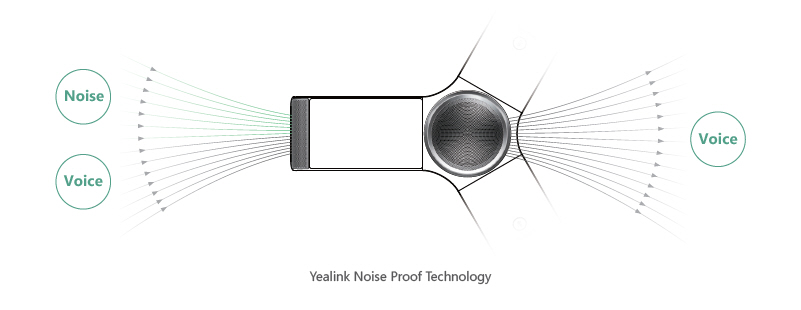Introduction
In the fast-paced world of business, efficient communication stands as a cornerstone of success. For decades, traditional phone systems have facilitated conversations, but with the advent of artificial intelligence (AI), a new era of communication is dawning. By integrating AI into modern business phone systems, organizations are not just enhancing their communication capabilities; they’re completely revolutionizing them. This article will delve into the ways AI is reshaping communication through business phone systems and explore various aspects such as automation, customer support enhancement, data analytics, and more.
How AI is Revolutionizing Communication Through Modern Business Phone Systems
AI technologies have seeped into almost every industry, and telecommunications are no exception. The integration of AI within business phone systems has created a paradigm shift in how companies interact internally and externally.
The Evolution of Business Phone Systems
From analog phones to VoIP technology, the evolution of business phone systems has been remarkable. With each advancement came increased functionality – but none quite as significant as the incorporation of AI.
From Analog to Digital: A Brief Overview
- Analog Systems: Limited features with basic functions. Digital Systems: Introduction of voicemail and call forwarding. VoIP Technology: Internet-based communication that allows for greater flexibility. AI-Driven Systems: Predictive analytics and automated responses.
The Role of AI in Modern Business Communication
AI acts as an enabler in modern business phone systems by analyzing vast amounts of data to enhance user experiences and streamline operations.
Enhancing Customer Engagement with AI
With features like chatbots and virtual assistants integrated into phone systems, businesses can provide 24/7 support.
- Chatbots: Handle routine inquiries without human intervention. Voice Recognition: Understands customer queries using natural language processing (NLP).
Automation in Business Phone Systems
Automation simplifies communication processes that were once time-consuming.
Streamlining Call Management
AI algorithms can prioritize calls based on urgency or previous interactions.
- Intelligent Call Routing: Directs calls to the most suited agent based on skill set. Automated Follow-Up Calls: Ensures no lead falls through the cracks.
Data Analytics Powering Decisions
AI enhances decision-making by transforming raw data into actionable insights.
Real-Time Data Analysis
Business phone systems equipped with AI can analyze call data in real-time to offer valuable feedback.

Personalization Through AI Insights
Communication becomes more effective when tailored to individual preferences.
Understanding Customer Behavior Patterns
By analyzing historical data, businesses can predict future behavior and adjust their strategies accordingly:
- Personalized greetings based on previous interactions. Customized offers sent directly through business phone systems.
Cost Efficiency with AI Integration
Integrating AI into business phone systems not only enhances functionality but also reduces costs significantly.


Reducing Operational Expenses
Automation leads to fewer human resources needed for mundane tasks:
- Lower labor costs due to automated responses. Decreased training time for new employees through intuitive interfaces.
Key Features of AI-Powered Business Phone Systems
When considering a transition to an AI-driven system, it's vital to understand its key features that contribute to enhanced efficiency.
Natural Language Processing (NLP)
NLP allows machines to comprehend spoken language effectively:
- Enables voice commands for hands-free operation. Improves accuracy in transcribing conversations for record keeping.
Predictive Dialers
These tools improve outbound calling efficiency:
Automatically dials numbers from a list. Connects agents only when someone answers.Speech Recognition Technology
This feature converts spoken words into text:
- Facilitates note-taking during calls. Assists in creating transcripts for compliance purposes.
Challenges Faced by Businesses Adopting AI Technologies in Communication
While the benefits are manifold, there are challenges associated with implementing these advanced technologies in business phone systems.
Integration with Existing Systems
Many businesses struggle with integrating new technologies seamlessly:
- Legacy systems may not be compatible with modern solutions.*
Security Concerns
With increased connectivity comes heightened risks:
- Cybersecurity threats must be addressed proactively.*
FAQs
1. What are modern business phone systems?
Modern business phone systems utilize digital technology such as VoIP and cloud services combined with features powered by artificial intelligence to enhance communication efficiency within organizations.
2. How does AI improve customer service?
AI improves customer service by enabling automation through chatbots that handle inquiries round-the-clock, allowing human agents to focus on more complex issues while providing faster resolution times for common questions.
3. Can small businesses benefit from AI-driven phone systems?
Absolutely! Small businesses can leverage affordable cloud-based solutions featuring AI capabilities that streamline their communication processes without incurring heavy operational costs associated with traditional setups.
4. Are there any drawbacks to using AI in communications?
Some potential drawbacks include initial setup challenges, compatibility issues with existing infrastructure, and ongoing maintenance requirements for software updates and cybersecurity measures.
5. How can I choose the right business phone system?
When choosing a system, consider factors such as scalability, integration capabilities with your current tools, cost-effectiveness over time, user-friendliness for employees & customers alike while ensuring robust security measures against threats like hacking or data loss!
6. Will my team require extensive training for an AI-powered system?
Most modern platforms are designed intuitively; therefore they often require minimal training compared to legacy VoIP Phone Service SoundCurve - Business Phone Systems options - thus making adoption smoother across teams!
Conclusion
As we navigate this digital age where effective communication is non-negotiable for success—integrating artificial intelligence into modern business phone systems stands out as a game-changer. From enhancing customer engagement through personalized interactions enabled by predictive analytics; automating mundane tasks leading towards cost savings—there's no denying that embracing these innovations will empower organizations towards achieving greater operational efficiency! As businesses evolve alongside technology advancements—those who adapt swiftly will undoubtedly gain the competitive edge necessary in today's landscape!
This comprehensive guide has explored how Artificial Intelligence is revolutionizing communication through modern business phone systems—highlighting both opportunities presented along challenges faced therein! So whether you’re a startup aiming high or an established enterprise looking for fresh ideas—investing wisely now could pave your way towards unparalleled success tomorrow!